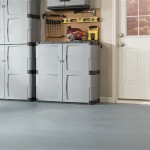How Wide Should A Double Garage Door Be? A Comprehensive Guide
The question of the ideal width for a double garage door is a common one for homeowners planning new construction, renovating existing garages, or simply replacing their current door. The answer isn't a simple number; it depends on several factors related to the intended use of the garage, the size of the vehicles to be housed, and the overall architectural design of the property. This article provides a detailed explanation of the considerations involved in determining the appropriate width for a double garage door, ensuring functionality, safety, and aesthetic appeal.
A double garage door, often referred to as a two-car garage door, fundamentally provides access for two vehicles. However, the standard dimensions are not a rigid standard, and variations exist to accommodate different needs. Understanding these variations and how they relate to your specific circumstances is crucial for making an informed decision.
Choosing the right width for a double garage door involves considering factors beyond just the dimensions of the vehicles. Maneuvering space, storage requirements, and future-proofing against potentially larger vehicles all play a significant role. A door that is too narrow can make parking difficult and increase the risk of damage to vehicles, while a door that is excessively wide may be aesthetically unappealing and could potentially compromise the structural integrity of the garage opening.
Standard Widths and Their Suitability
The most common width for a double garage door is 16 feet (192 inches). This is often considered the "standard" size and is typically sufficient for accommodating two standard-sized cars with a reasonable amount of space for opening doors and maneuvering. However, even within this "standard" designation, there can be nuances. Some manufacturers might offer slight variations, and older homes might have garage openings that deviate from this norm.
Another frequently encountered width is 18 feet (216 inches). This wider option offers significantly more space, making it particularly suitable for larger vehicles like SUVs, trucks, or vans. The extra width also provides a more comfortable margin for error when parking, reducing the likelihood of accidental scrapes and dents. Furthermore, this extra space becomes invaluable if you intend to use the garage for more than just parking vehicles, such as for storage or as a workspace.
It is important to determine the suitability of these standard widths by carefully measuring the vehicles that will regularly use the garage. Consider the width of the vehicles at their widest point, including side mirrors. Add additional space on each side for comfortable entry and exit. A minimum of 12 inches on each side is often recommended, but more may be desirable depending on individual comfort levels and the size of the vehicles.
If you anticipate owning larger vehicles in the future, it's wise to factor this into your decision. Choosing a wider door now can save you the cost and inconvenience of replacing it later. Similarly, if the garage will be used for storing items alongside the vehicles, the extra width of an 18-foot door can be a worthwhile investment.
Factors Influencing Width Selection
Beyond the size of the vehicles, several other factors influence the optimal width of a double garage door. These factors relate to the functional requirements of the garage space, the physical limitations of the property, and aesthetic considerations.
Firstly, the available space within the garage itself is a primary constraint. A wider door requires a wider garage opening, which may not be feasible in certain situations. The structural support of the garage must also be considered. Widening an existing opening could necessitate modifications to load-bearing walls or headers, which may require professional assessment and potentially increase construction costs.
Secondly, the layout of the driveway and the surrounding property can impact the optimal door width. If the driveway is narrow or angled, a wider door might make maneuvering vehicles into the garage more challenging. The proximity of adjacent structures, such as fences or landscaping, can also limit the usable space and influence the choice of door width.
Thirdly, aesthetic considerations play a vital role. The garage door is a prominent feature of the house's facade, and its size and style should complement the overall architectural design. A door that is disproportionately wide compared to the rest of the house can look awkward and detract from the property's curb appeal. Conversely, a door that is too narrow can make the garage appear cramped and less inviting.
Finally, local building codes and regulations may impose specific requirements regarding garage door dimensions, particularly in relation to accessibility standards and emergency egress. It's crucial to consult with local authorities or building professionals to ensure that the chosen door width complies with all applicable regulations.
Custom Width Options and Considerations
While 16 feet and 18 feet are the most common widths for double garage doors, custom sizes are also available. This option allows for a tailored solution that perfectly meets specific needs and constraints.
Custom garage doors can be fabricated to virtually any width, within the structural limitations of the garage opening. This flexibility is particularly useful for homeowners with unusually sized vehicles, unique storage requirements, or architectural designs that deviate from standard dimensions. For example, someone storing a boat or recreational vehicle (RV) in their garage might require a significantly wider door than the standard 18 feet.
The primary advantage of a custom width is the ability to optimize the garage space for its intended use. A custom door can provide the precise amount of clearance needed for vehicles and storage items, maximizing usable space and minimizing wasted space. It can also allow for a more seamless integration with the architectural style of the house, creating a more visually appealing and harmonious design.
However, custom garage doors typically come with a higher price tag than standard sizes. The increased cost reflects the specialized manufacturing process and the potential need for custom installation. It's essential to obtain quotes from multiple suppliers and carefully compare prices before making a decision.
Furthermore, custom garage doors may have longer lead times for production and delivery. Since they are not typically stocked in standard sizes, they may need to be manufactured to order, which can add several weeks to the overall project timeline. This should be factored into the planning process, especially if the garage door replacement is part of a larger renovation or construction project.
When considering a custom width, it's crucial to work with a reputable and experienced garage door installer or contractor. The installer can assess the structural requirements of the garage opening, provide guidance on the optimal door width, and ensure proper installation. A poorly installed garage door, regardless of its size, can pose safety risks and lead to operational problems in the future.
In conclusion, determining the ideal width for a double garage door involves a comprehensive assessment of several factors, including the size of the vehicles to be housed, the intended use of the garage space, the physical limitations of the property, aesthetic considerations, and local building codes. While standard widths of 16 feet and 18 feet are often adequate, custom sizes offer a tailored solution for those with unique needs and constraints. Careful planning and consultation with professionals are essential to ensure that the chosen door width provides functionality, safety, and aesthetic appeal for years to come.

What Are Standard Garage Door Sizes Single Double Jb Doors

Standard Garage Door Sizes Single Double Roller Doors Sectional

Residential Garage Doors Available Sizes Garaga

Garage Door Width Guide Optimal Sizes For Vehicles Storage

Garage Door Width

Understanding Standard Garage Door Sizes Premium Living Victoria

Garage Door Width

Garage Dimensions

Garage Door Size Chart Precision

Sectional Garage Door Measurement Samson Doors
Related Posts








